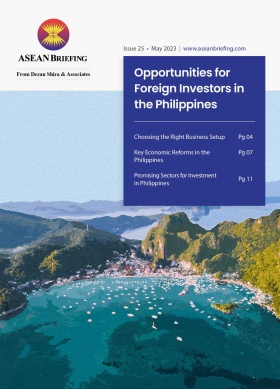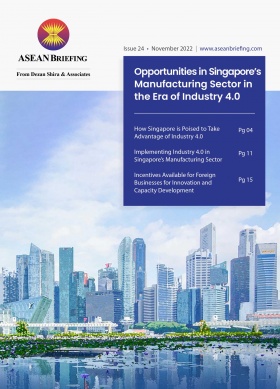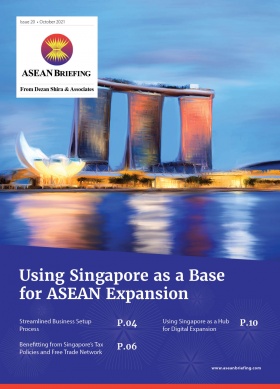An Overview of Goods and Services Tax in Singapore
The goods and services tax is a self-assed tax in Singapore. The current rate is eight percent, but this is expected to rise to nine percent in 2024.
The goods and services tax (GST), charged as value-added tax (VAT) in other markets, is a consumption tax imposed on goods and services in Singapore, regardless of whether they are acquired from domestic or overseas suppliers.
As GST is a self-assessed tax, Singapore-based businesses are required to assess their need to register for GST. Companies must register for GST if they:
- Earn a taxable turnover of more than S$1 million (US$741,900) during a 12-month period at the end of the calendar year.
- Expect to earn a taxable turnover of more than S$1 million (US$741,900) in the next 12 months.
The GST rate in Singapore is currently eight percent. However, the government is planning to increase the GST rate to nine percent in January 2024. The main justification for this rise is to fund future infrastructure projects and increase spending on social welfare.
The GST that is levied on customers is known as ‘output tax’, and the GST that is incurred on business purchases and expenses, which includes the import of goods, is known as the ‘input tax’. The difference between the output and input tax is the net GST payable to the government.
GST registration
Submit a GST registration application with IRAS
Online applications can be done through the myTax Portal using the company’s CorpPass (a corporate digital identity for companies) with other supporting documents such as the company’s Accounting and Corporate Regulatory Authority (ACRA) Business Profile and Certificate of Incorporation.
Notification from IRAS
The IRAS will send the company a notification confirming that the company is registered for GST. The notification will include:
- The company’s GST number; and
- The company’s effective date of GST registration.
GST treatment of media sales
Starting from January 1, 2020, foreign digital service providers will have to register for GST and charge for GST under Singapore’s Overseas Vendor Registration (OVR) regime. Previously, only services procured from local businesses were subject to GST. Digital services include:
- Downloadable mobile applications, e-books, and movies;
- Subscriptions to TV shows, music, and online gaming; and
- Downloadable drivers, software, and
However, foreign digital service providers will need to have a yearly global turnover of more than S$1 million (US$737,705) and sell more than S$100,000 (US$73,747) worth of digital services to customers in Singapore, before they are obligated to register and charge GST.
The IRAS has underlined the basis for which the supply of media sales will be subject to zero percent goods and services tax (zero-rated GST). The change has come into effect since January 1, 2022.
Currently, the supply of media space for online advertising by a taxable person is a zero-rated supply for GST if the advertisement is substantially circulated (at least 51 percent) overseas. Under the changes, if the contractual customer is located outside of Singapore or is a GST-registered person in Singapore, the media sales will be zero-rated.
Like most digital sectors, online advertising has seen immense growth during the pandemic, and coupled with new developments in technology, it has become increasingly challenging for taxpayers to determine whether such media supplies qualify for zero-rated GST.
What do media sales refer to in Singapore?
According to the IRAS, media sales refer to:
- The sale of advertising airtime for broadcasting via radio or TV;
- The sale of media space for online advertising; and
- The sale of advertising space for hardcopy prints, such as on billboards, newspapers, and magazines.
The supply of media sales by local suppliers
As stated earlier, with effect from January 1, 2022, the supply of media sales will be zero-rated if it directly benefits a person overseas or a GST-registered person in Singapore.
For the supply of media sales, the comptroller — the person responsible for the quality of financial reporting in an organization — will regard the contractual client as the sole beneficiary of the services if the following criteria are satisfied:
- The service agreement between the media supplier and their contractual client does not require the services to be provided to another party; and
- The supplier only takes instructions from the contractual client for the service.
The supply of media sales by overseas suppliers to GST-registered businesses in Singapore
Since January 1, 2022, if an overseas supplier makes a supply of media sales to a GST-registered person/business in Singapore then the recipient, if they are a reverse charge (RC) business, must apply RC and account for GST on the value of their imported services as if they were the supplier, regardless of the place of circulation of the advertisements.
RC businesses refer to those who are subject to reverse charges when they are not entitled to a full input tax credit or belong to a GST group not entitled to the full input tax credit. Previously, the supply of media sales from an overseas supplier to a GST-registered person fell outside the scope of RC if the advertisements were substantially circulated outside of Singapore.
The supply of digital media sales by overseas suppliers to non-GST registered persons in Singapore
From January 1, 2022, the supply of digital media sales by an overseas supplier to a non-GST registered person in Singapore will be subject to GST, under the OVR regime.
GST liability on low-value goods
Since January 1, 2023, Singapore has imposed the goods and services tax (GST) on imported low-value goods. Low-value goods refer to goods imported by air or post that are valued up to and including the GST import relief threshold of S$400 (US$301). Non-digital services, such as online training or coaching where the customer is not at the location where the service is being provided, must also pay GST.
About Us
ASEAN Briefing is produced by Dezan Shira & Associates. The firm assists foreign investors throughout Asia and maintains offices throughout ASEAN, including in Singapore, Hanoi, Ho Chi Minh City, and Da Nang in Vietnam, in addition to Jakarta, in Indonesia. We also have partner firms in Malaysia, the Philippines, and Thailand as well as our practices in China and India. Please contact us at asean@dezshira.com or visit our website at www.dezshira.com.
- Previous Article Examining Thailand’s Economic Revival and Investment Opportunities
- Next Article Philippines’ Public Holidays for 2023







